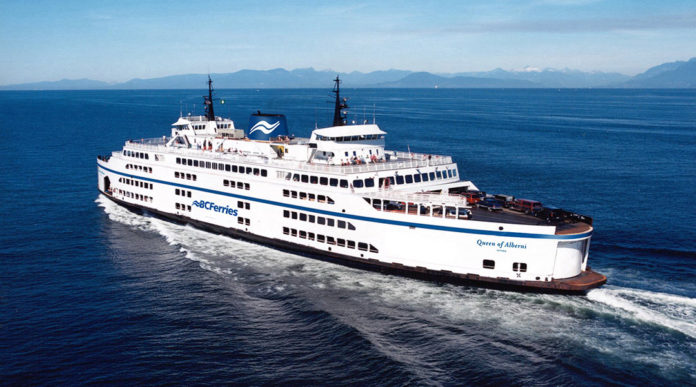As crew shortages plague BC Ferries, the organization is now warning its customers to brace for more delays and altered sailing schedules into the peak summer season.
Hiring challenges are fueled by vaccination policies, troubles recruiting international candidates due to COVID-19, and a shortage of professional mariners, according to BC Ferries.
But the organization isn’t alone, noting other ferry services in BC’s interior and the states of Washington and Alaska also face similar issues.
Earlier this month, the Town of Sidney said the Sidney-Anacortes ferry route would not be operating this spring due to a crew shortage, with service unlikely to be restored for summer.
Currently, BC Ferries is gearing up for more traffic than usual as COVID-19 restrictions ease and warmer weather rolls in, with travellers eager to explore the province.
To avoid sailing waits, customers are encouraged to book in advance, travel at less busy times and as a foot passenger, arrive early, and ‘know before you go’—by checking BCFerries.com to view the status of routes.
BC Ferries says it’s working to minimize any impact to the travelling public, implementing extra initiatives including internal training investments and a significant recruitment push via career fairs and WorkBC.
SEE ALSO: BC Ferries continues schedule changes until June due to staffing shortage
According to the organization, these tactics have supported filling 600 positions required for the summer. It says some potential service interruptions may be “predictable” and “mitigated” by changing sailing times.
“However, isolated sailing cancellations may be experienced due to factors like crew illness,” it said.
“BC Ferries’ goal is to avoid service disruptions wherever it can, to communicate service disruptions as soon as they become known, and to minimize the impact these disruptions have on the travelling public.”
Over the years, BC Ferries says it’s built up “robust systems” to mitigate the shortage of mariners, including staffing pools, cross-training employees, and overtime pay for employees who cover gaps.
“Despite these mitigations, many industries are facing very significant shifts in the employment market,” it added.



